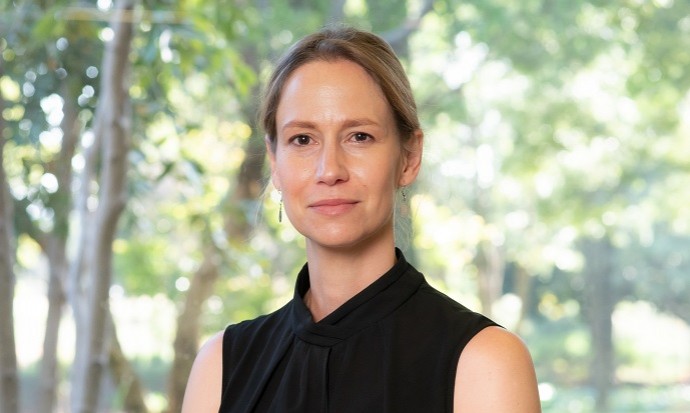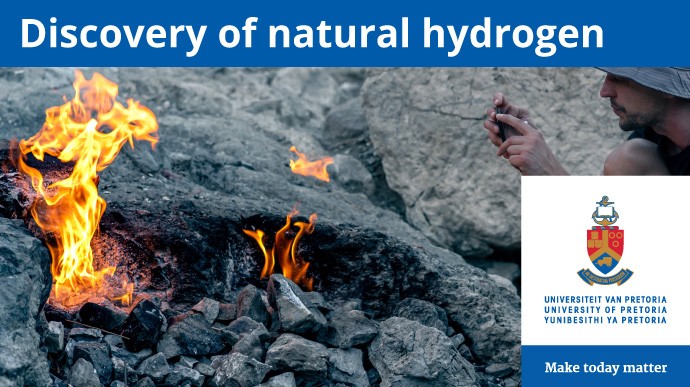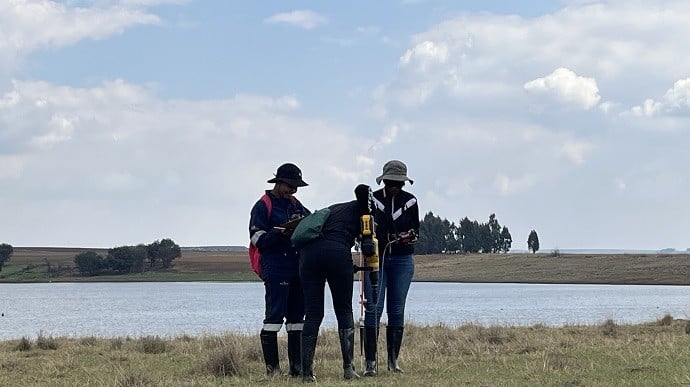
Dr Ansie Smit completed her undergraduate and postgraduate studies at the University of Pretoria (UP). She has been involved in research at UP since 2009. Initially, she was primarily involved in the UP Natural Hazard Centre and is now a senior lecturer in the Department of Geology.
She says she is doing research at UP because it is one of the leading research universities in South Africa and has a strong focus on sustainability and real-world impact.
Her research focuses on developing statistical solutions for applied problems, especially in earth sciences. Current research projects include the spatial and spatio-temporal modelling of earth processes. This research improves our understanding of these processes and natural disasters, and how we can use this knowledge to better society.
Dr Smit is part of three research teams. The first is a collaboration between various UP departments focusing on the development of hail hazard maps for South Africa. These maps can aid agricultural and insurance industries in planning and developing financial instruments in instances of extreme hail events.
The second team, StatSNetSA, looks at peer development and support of doctoral supervisors in South Africa. This follows from a shortage of statisticians in academia and the exceptionally strong pull from industry. A guiding rubric for doctoral supervision applicable to all South African universities has been developed and is in the process of being published.
“We hold regular workshops with early-career, mid-career and late-stage academics in South Africa with a strong focus on peer support and capacity building,” Dr Smit says. “A new focus is also on the role that large language models (such as ChatGPT) can play in doctoral supervision.”
As part of a new research project, she is concentrating on statistical and geostatistical modelling to track the occurrence of natural hydrogen in Mpumalanga. The research forms part of a larger multidisciplinary project that is focused on early-stage identification of the presence and source of natural hydrogen and determining the geological controls on its occurrence. The project aims to find natural hydrogen sources in Africa (South Africa, Mozambique, Morocco and Togo) that could lead to new, easily accessible, clean and renewable energy sources. UP is a leading South African partner, as is the University of Limpopo, in an international consortium of European Union (EU) and African Union (AU) countries. The project is being funded by LEAP-RE (Long-term Joint EU-AU Research and Innovation Partnership on Renewable Energy).
The investigation of the potential geological controls for natural hydrogen involves various faculties and includes several working groups. The research ranges from identifying and understanding these geological controls to research on local energy systems, and the economics of standalone and off-grid systems in remote or small communities. The aim is to provide policy and regulatory analysis and guidelines for the implementation of regional/national roadmaps for a consistent strategy for natural hydrogen exploitation. Emeritus Professor David Walwyn of the Graduate School of Technology Management in the Faculty of Engineering, Built Environment and Information Technology leads UP’s involvement in this aspect of the project.
The natural hydrogen project started in September 2022, and currently field data is being collected in the Hendrina area in Mpumalanga. A notable highlight was the recording of natural hydrogen in the soil beyond the detection limits of the hydrogen meter (10 000 ppm), which is significantly higher than the expected background reading of hydrogen in soils and the atmosphere of 0.5 ppm. This and other high measurements imply a significant presence of hydrogen in that area.
Dr Smit enjoys participating in cross-disciplinary research projects that have real-world implications. Statistical modelling combined with geological and physical analyses of natural Earth processes opens up new and exciting research avenues, and can contribute to South Africa’s national goals and the Sustainability Development Goals.
She encourages school learners or undergraduates who are interested in her field to always keep an open mind to see where these types of opportunities present themselves.
“It allows you to connect to other research fields that you may find interesting with your main specialisation to solve complex problems of our time,” she says.
 Story
Story
Scientists at the University of Pretoria (UP) are leading a study of natural hydrogen gas discovered under the Earth’s surface in Mpumalanga – a source of renewable energy that could contribute to the national energy budget and help address the energy shortage in South Africa.
 Infographic
Infographic
Hydrogen is considered a fuel of the future due to it emitting zero emissions. This infographic explains the impact of this discovery as well as some interesting facts about hydrogen and the different forms of it.
 Gallery
Gallery
Take a journey through some pictures from the field when UP scientists explored what lay beneath Mpumalanga's soil and rocks.
Copyright © University of Pretoria 2025. All rights reserved.
Get Social With Us
Download the UP Mobile App